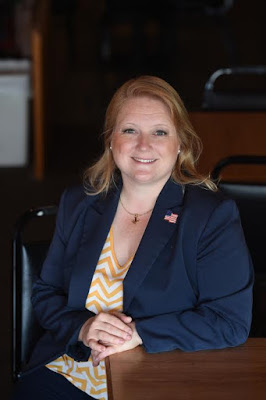 WATERTOWN, NY — Assemblywoman Addie A.E. Jenne, D-Theresa, announced today her proposed dairy quality premium payment plan to provide a financial incentive program to reduce the somatic cell count in fluid milk would help address farm labor concerns stemming from increased enforcement efforts by immigration officials.
WATERTOWN, NY — Assemblywoman Addie A.E. Jenne, D-Theresa, announced today her proposed dairy quality premium payment plan to provide a financial incentive program to reduce the somatic cell count in fluid milk would help address farm labor concerns stemming from increased enforcement efforts by immigration officials.
“The job market is more competitive than it has been in the last few years, and the low price of milk makes it difficult for farmers to provide wages necessary to attract local workers,” she noted.
“We should look at measures to attract a local workforce to farming as a complement to my dairy premium proposal. I know our farmers have found it challenging to recruit local residents for jobs on the farm, and it will take a concerted effort to change that trend,” Assemblywoman Jenne acknowledged.
“Given the dire financial situation on our farms and the growing labor crisis, we have to do something to protect our state’s largest economic sector,” she argued.
Assemblywoman Jenne has called on the state to provide a financial incentive program to reduce the somatic cell count in fluid milk from the federally mandated 750,000/ml to 400,000/ml -– the same level used in the European Union and the highest global standard.
High somatic cell counts are associated with bacterial infections in cows that result in lower yields and low-quality milk. This program would operate over three years and give farmers a competitive leg up on the global dairy industry.
The premium would be equal to the five-year monthly average of milk produced by the farm and would be capped at $3 per hundredweight of milk. Assemblywoman Jenne envisions the premium would be of significant assistance to dairy farmers when the price of fluid milk drops below $18 per hundredweight.
“The plan I proposed would be optional, but I think enough farmers would participate in the premium program that it would help rein in the oversupply of milk, create the highest statewide standard of milk quality in the nation and address the labor challenges that our farmers are facing,” Assemblywoman Jenne said.
She has previously suggested state economic development funds should be used to shore up the state’s struggling dairy farms, noting that her premium proposal would protect and create jobs in some of the state’s most economically-challenged regions, like the North Country.
The region had a long history of young adults starting their work careers on farms, but the ability to attract local residents to farm work has declined over the past few decades.
“Without help, our farmers cannot compete with other sectors of the economy that draw their workforce from the same demographic,” Assemblywoman Jenne said.
“It’s hard work on the farm, and you can make far more in construction than in farming. My proposal would provide financial stability to our dairy farmers in the short-term and long-term, and farmers could use that stability to shift their workforce to local residents,” Assemblywoman Jenne said.
Assemblywoman Jenne also said federal officials need to work with the agriculture industry to address the challenges facing the current workforce.
New York State Agriculture Commissioner Richard Ball has estimated half of the state’s farm labor force is in the United States without documentation.
Commissioner Ball has also expressed concern that the immigration raids on farms throughout the state could force some farms to close due to the lack of a workforce.

